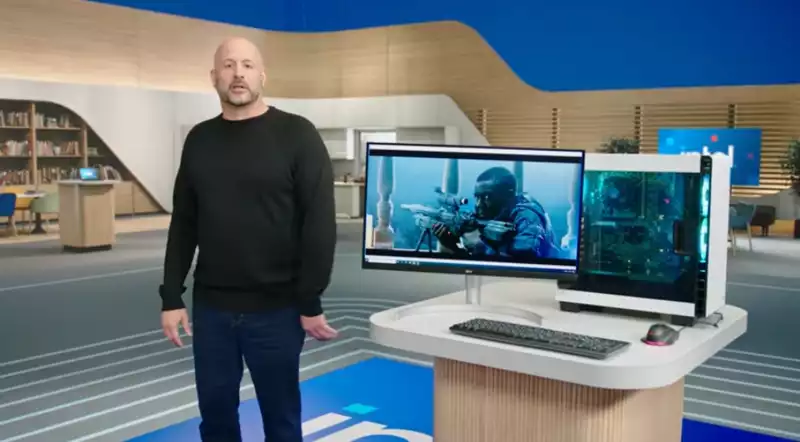At Intel's "Do More With the Power of Computing" at CES, we got a glimpse of what to expect from this computing giant this year, including a demonstration of the Intel Alder Lake chips coming in late 2021.
A new segment of gaming laptops was unveiled, previewing the new line of 11th generation Intel Core H-series mobile processors, as well as a peek at the next generation of Intel desktop gaming processors, Rocket Lake-S The next generation of Intel desktop gaming processors, Rocket Lake-S, also got a sneak peek. However, Intel closed the show by showing off the next generation of its next CPU, Alder Lake, running on a Windows machine.
Intel claims that this next-generation processor is a "significant breakthrough in x86 architecture" and is the most power scalable chip that integrates high-performance and high-efficiency cores into a single product.
Intel also announced that Alder Lake will be manufactured on an enhanced 10nm SuperFin process with faster transistors and improved MIM capacitors. So is it 10nm SuperFin+, SuperFinE (meaning enhanced, but pronounced Super Fiiiiiiiine), or will they stick with Enhanced 10nm SuperFin?
Unfortunately, we saw no benchmarks or solid numbers directly comparing it to the competition. Therefore, this is literally a "powered on and almost working" kind of thing with engineering sample processors.
Eight powerful Golden Cove cores (the next-generation successor to the Willow Cove design currently powering Tiger Lake) and eight power-efficient Gracemont cores (next-generation Atom cores) will ultimately result in a hybrid 16-core design. HyperThreading will also be included, but according to early mentions in benchmark databases, only the high-end cores will be included
.
This would result in a hybrid CPU with 24 offset threads, which would provide significant power and many challenges for software.
We have mentioned before that Alder Lake's hybrid approach aims to give AMD Ryzen chips a shot in the arm, but how risky hybrid chips actually look to Windows operating systems will be key to all It will all come down to how the risky hybrid chip will look in practice to the Windows operating system. Will Microsoft's schedulers be smart enough to constantly push critical processes to a bigger, more powerful core, or will we see a confused OS that doesn't know where to turn?
During his presentation, Intel Senior Vice President Gregory Bryant said that Intel wants Alder Lake to "serve as the foundation for leadership desktop and mobile processors that enable smarter, faster, and more efficient real-world computing We want to make it the foundation for smarter, faster, more efficient real-world computing."
The hardware may be superior, but if the software side is not nailed down with Alder Lake, it may not have any teeth at all. Either way, whatever the outcome, it is an incredibly exciting architecture.


Comments